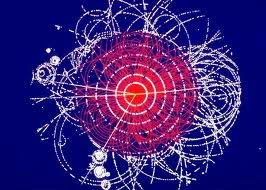Advanced Superconductor Technology Enabling Cutting-Edge Research
Applications in Physics and Energy Research
Superconductors, including Nb3Sn, are needed for high field magnets for “big science”, that is High Energy Physics, Fusion and Nuclear Physics, research applications.
Nb3Sn Applications
Hyper Tech’s high performing Nb3Sn superconductors are relevant for cost-effective 18-20 T fusion magnets for plasma confinement. Future advanced circular collider accelerators will require tons of high performing Nb3Sn.
MgB2 Applications
Hyper Tech’s MgB2 conductors are suitable for high amperage distribution cables for high energy particle colliders and lower field (< 7 T) research magnets for science experiments, including of muon colliders and other near-term accelerator-based exploratory projects.
MgB2 is also a viable and logical candidate for incorporation into superconducting magnets of future fusion systems, such as the poloidal and correction coil magnets, feeders, and possibly graded magnets that operate in medium fields (≤6 T) and temperatures (≤20 K) in future fusion machines.
Operational Advantages
MgB2 operating at 10-25 K either in a cryogen-free environment or in helium gas exhaust from an existing system offers an exciting and practical alternative to magnets designed with liquid helium bath cooling.
Applications in Physics and Energy Research
Superconductors, including Nb3Sn, are needed for high field magnets for “big science” research applications for High Energy Physics, Nuclear Physics, and most excitedly, Fusion.
Nb3Sn Applications
Hyper Tech’s high performing Nb3Sn superconductors are relevant for cost-effective 18-20 T fusion magnets for plasma confinement. Future advanced circular collider accelerators will require tons of high performing Nb3Sn.
MgB2 Applications
Hyper Tech’s MgB2 conductors are suitable for high amperage distribution cables for high energy particle colliders and lower field (<7 T) research magnets for science experiments, including of muon colliders and other near-term accelerator-based exploratory projects.
MgB2 is also a viable and logical candidate for incorporation into superconducting magnets of future fusion systems, such as the poloidal and correction coil magnets, feeders, and possibly graded magnets that operate in medium fields (≤6 T) and temperatures (≤20 K) in future fusion machines.
MgB2 operating at 10-25 K either in a cryogen-free environment or in helium gas exhaust from an existing system offers an exciting and practical alternative to magnets designed with liquid helium bath cooling.
